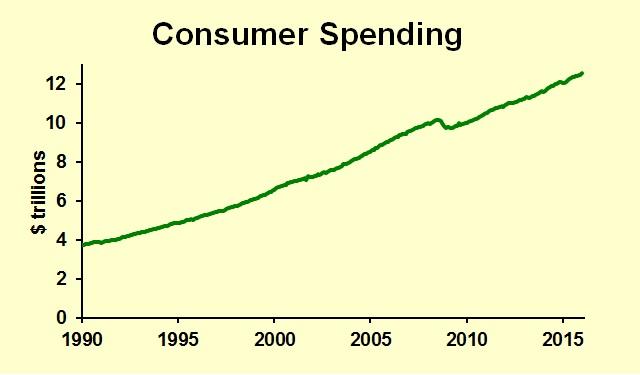Does money buy happiness? And at what exchange rate? And how do I get the most happiness from a buck of money? Happiness research, based on surveys of life satisfaction, has addressed these issues, with implications for both personal behavior and the economic forecast.
Happiness is measured by a variety of surveys asking people how happy or satisfied they are. The data are imperfect, but the questions have been asked by lots of researchers in different ways, and in different languages, and we’re getting some consistent answers. Betsey Stevenson and Justin Wolfers reviewed many other studies and concluded that money does, in fact buy happiness.
However, more money helps a poor person’s happiness more than it does a rich person’s. An extra $10,000 a year starting from $20,000 does more good than if the person is starting at $100,000. Researchers find the relationship looks logarithmic (and if you don’t recall logarithms, just think of a curve that rises and then flattens out).

When I was a young junior professor making peanuts, I owned an old Plymouth with a bad radiator. Driving one hundred miles in the summer was a worrisome trip. Now I place my car in my mechanic’s hands and pay for whatever service he recommends. I sometimes wonder if I’m getting ripped off, but I don’t hesitate to get in the car and drive. I concluded that money might not buy happiness, but it can buy a way out of many worries, which is a good start toward happiness.
Recent psychological research suggests that how you spend your money makes a difference. Thomas Gilovich and Amit Kumar have surveyed a large body of research and concluded that experiences are a better buy than things. Traveling to an interesting place will provide more lasting satisfaction than upgrading your car, even if they cost about the same amount. That sounds strange at first, because a car lasts longer than a two-week vacation. But the vacation involves anticipation ahead of time as well as memories afterward. The vacation is more likely to be with someone else, and social activities tend to promote happiness more than solitary activities.












Leave A Comment